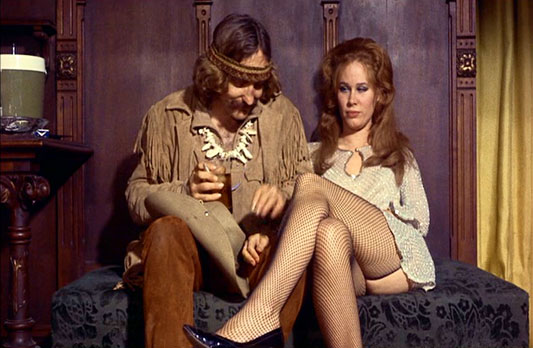Karen Black launched her career in the iconic American road picture Easy Rider, though fans of cheaply made horror know her for other reasons. Whether she was being possessed by her new house (Burnt Offerings), mothering a monster (It’s Alive III: Island of the Alive), or a family of monsters (House of 1000 Corpses), Black lent her skills to scores of genre flicks. These were mostly terrible (Plan 10 from Outer Space? Come on!), and they unfortunately drew attention from some of the impressive roles that exemplified her genuine talent over her five decade career. Here’s a quick reminder of why we love Karen Black.
Five Easy Pieces (1970)
Black stuns as Jack Nicholson’s white trash girlfriend in one of the great flicks of the American Seventies. Her Oscar nominated performance proved her mettle in animating a low rent sensuality that would mark her entire career.
The Great Gatsby (1974)
Black injects the uptight world of F. Scott Fitzgerald’s Great Gatsby with a little destructive vulgarity, winning a Golden Globe for her excellent turn as blue collar temptress Myrtle Wilson.
Come Back to the Five and Dime Jimmy Dean, Jimmy Dean (1982)
Although Robert Altman’s adaptation of Ed Graczyk’s stage play offered Cher an opportunity to prove herself, Black’s performance as a transsexual James Dean fan served as a reminder of the talent we’d always suspected.
Nashville (1975)
A country singer in Altman’s microcosmic epic, Black held her own in an impressive ensemble and also earned a Grammy nomination for the song she penned and sang.
http://www.youtube.com/watch?v=MmEynMp00_E
Rubin and Ed (1991)
The great eccentric buddy picture brought forth Howard Hessman’s best-ever performance, the character that would get Crispin Glover kicked off Letterman, and an opportunity for Karen Black to shine again as a loser’s irritated ex-wife.
http://www.youtube.com/watch?v=tI-PUyELjjc

